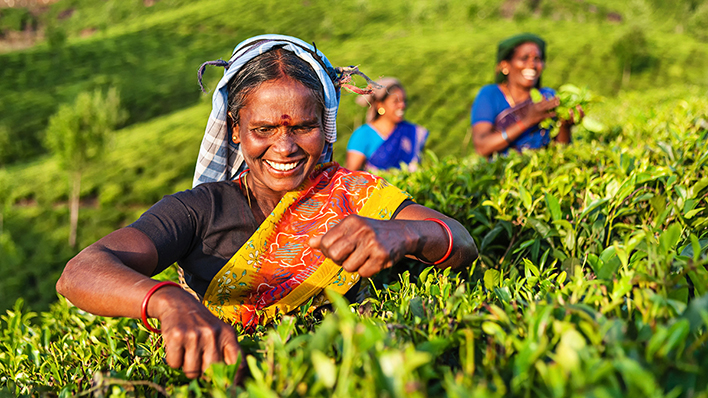
National regulators, academics and representatives from international organizations and the private sector presented examples of “South-South cooperation” (i.e., between two or more developing economies) and triangular cooperation (i.e., between two or more developing economies supported by a developed economy(ies)/or multilateral organization(s). “By combining the strengths and resources of multiple stakeholders, triangular cooperation can enhance the effectiveness and impact of South-South cooperation initiatives,” DDG Zhang noted.
Citing 2022 data from the United Nations Conference on Trade and Development, DDG Zhang noted that the share of South-South trade in world trade has expanded from 17 per cent in 2005 to 28 per cent in 2021. Its value has increased by approximately 50 per cent since 2019. South Asia and East Asia have witnessed growth of over 65 per cent and Latin America of about 45 per cent.
China has become Africa’s main trading partner, with a trade volume of USD 254 billion in 2021, representing a 35 per cent increase from 2020. During the same period, India and Africa’s bilateral trade reached USD 89.5 billion, reflecting 60 per cent growth. There has also been diversification in the range of South-South partners.
Encouraging South-South and triangular cooperation partners to use the Aid-for-Trade platform to share their experiences, expertise and good practices, DDG Zhang called on members to seize “this opportunity to forge long-term collaboration, exchange best practices, and develop innovative solutions that will shape a brighter and more prosperous future for all.”
The Africa Medical Supplies Platform was among the South-South initiatives highlighted by the Director of the United Nations Office for South-South Cooperation Ms Dima Al-Khatib. Under this initiative, African governments pool resources to access more affordable COVID-19 vaccines and other essential medical supplies. The boost that the African Continental Free Trade Area (AfCFTA) is expected to bring to the trade of its 54 African member states was also highlighted. A rise of 52.3 per cent in their trade by 2040 is estimated by the United Nations Economic Commission for Africa, along with an increase in the value of intra-African of between 15 per cent and 25 per cent by 2040, compared to the situation without AfCFTA.
Thailand’s International Cooperation Agency (TICA) outlined how its annual international training courses have helped to strengthen cooperation networks with other developing economies. These technical assistance activities cover topics such as agriculture and food security, climate change and achievement of the Sustainable Development Goals. TICA’s Director-General, Ms Ureerat Chareontoh, presented ongoing projects in trade facilitation implemented through the Association of South-East Asian Nations (ASEAN) and underlined the focus on promoting bio-circular green economy models.
Participants drew attention to the bilateral Comprehensive Economic Partnership Agreements between India and Korea and India and the United Arab Emirates.
The important role that South-South and triangular cooperation is playing to mobilize foreign direct investment (FDI) was emphasized. Calling for increasing FDI to Southern partners, Professor Ge ShunQi from Naikai University explained how China is strengthening FDI to Africa through special economic zones.
The call for more FDI was echoed by the Director General of India’s Research and Information System for Developing Countries, Professor Sachin Chaturvedi, along with the need to bolster participation in global value chains. He also highlighted the need for increasing South-South partners’ access to trade finance, technology and development assistance.
The Organisation for Economic Co-operation and Development (OECD) said its data reveals that development financing through triangular cooperation is on an upward trend, but much more can be done to scale up partnerships – a topic that OECD will explore at its 7th International Meeting on Triangular Cooperation, to be hosted in October 2023.
The United Nations Industrial Development Organization (UNIDO) presented PAMPAT Tunisia, among other projects. PAMPAT seeks to boost industrial production in Tunisian export-based sectors by increasing value and diversifying exports, with the objective of deepening companies’ access to global markets. UNIDO also highlighted the opening of a Centre for South-South and Triangular Industrial Cooperation in Vienne, Austria, and the growing focus on sustainability in its work.
The International Trade Centre (ITC) described how it is helping micro, small and medium-sized enterprises in developing economies harness the benefits that South-South cooperation brings for business development. ITC is engaged in a triangular cooperation project with the United Kingdom and China to increase foreign investment and business partnerships in agro-processing and light manufacturing in Ethiopia, Kenya, Mozambique and Zambia.
Quality Pulse Exporters, Tanzania, noted how a triangular cooperation project between the UK and ITC — Supporting Indian trade and investment for Africa (SITA) — has helped this export company trading in processed agro commodities overcome challenges such as access to credit, connecting with buyers and investing in robust procurement and distribution systems.
Closing the webinar, the Chair of the Committee on Trade and Development, Ambassador José R. Sánchez-Fung (Dominican Republic), said: “South-South trade and triangular cooperation offer a unique and powerful approach to addressing shared challenges, leveraging collective expertise and promoting inclusive growth.”
Copies of the presentations can be found here.
Information about Aid for Trade is available here.
Background
The 1978 Buenos Aires Plan of Action calls for Promoting and Implementing Technical Cooperation among Developing Countries. The Buenos Aires 2019 Outcome Document recognizes the growing role of South-South cooperation in strengthening trade between South partners to help them meet their development objectives in a WTO-consistent manner.
Share
Reach us to explore global export and import deals